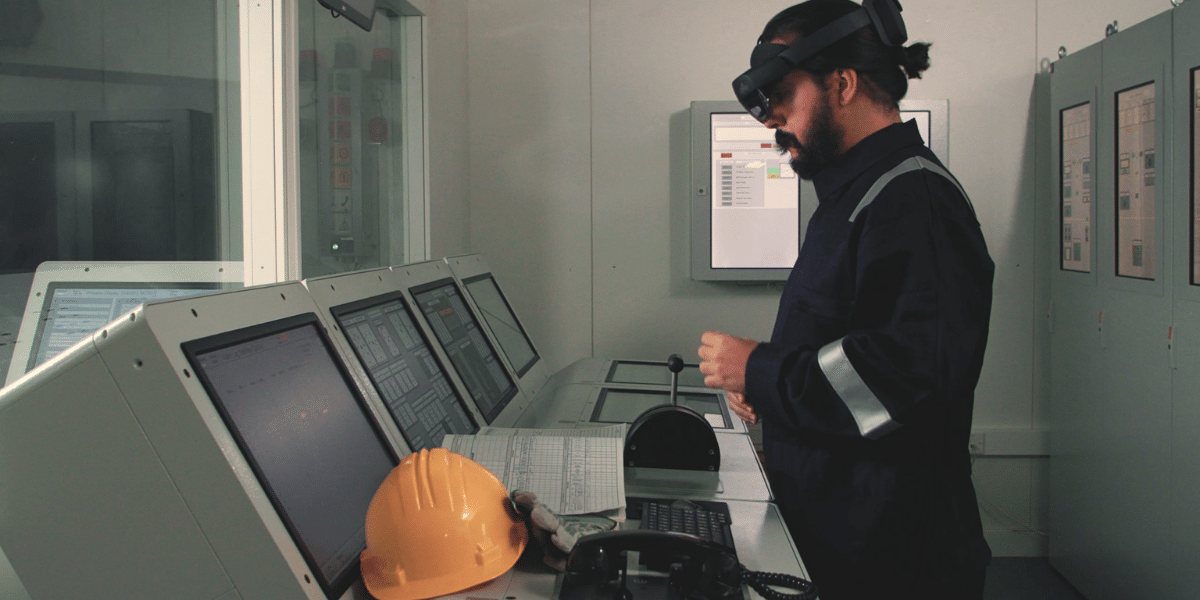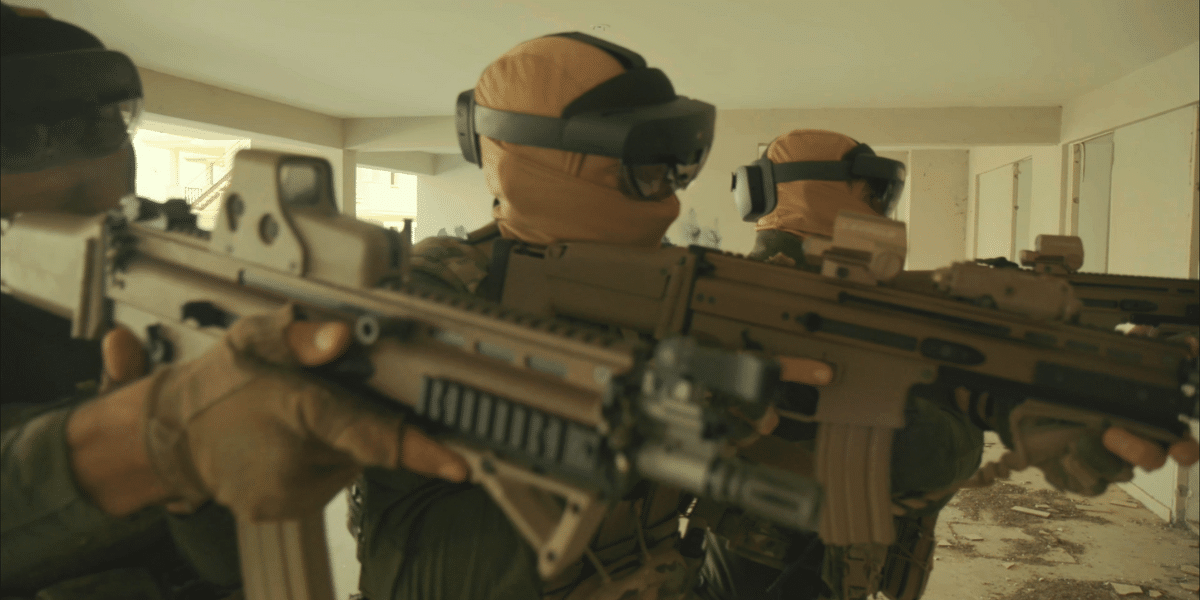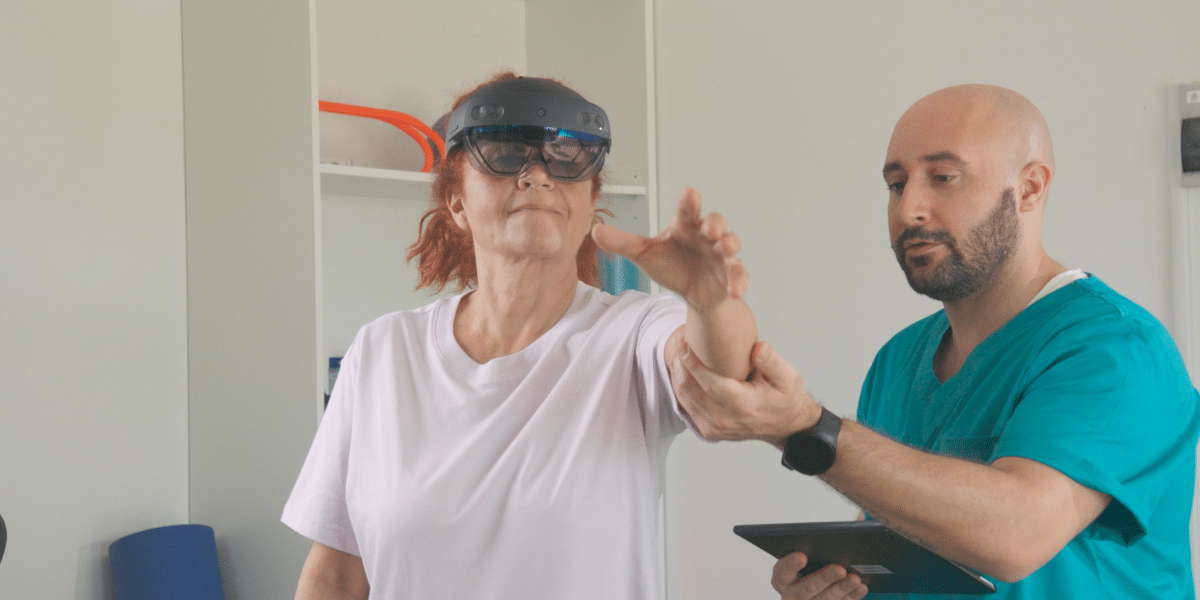Ascation’s founding visionaries George Tziazas and Minas Kyriakou chart Ascanio’s course, including their early struggles and triumphs, as well as the support they received along the way.
By Souzana Psara
From the moment I stepped into Ascanio’s dynamic space in Nicosia, I could sense an atmosphere charged with creativity and ambition. George Tziazas, the CEO, and Minas Kyriakou, the CTO, welcomed me with a warmth that immediately dispelled any notion of corporate coldness.
The story they unravelled was one of vision, resilience, and the relentless pursuit of pushing technological boundaries—characteristics that would soon come to define Ascanio’s unique path in the world of mixed reality (MR).
George began the story with the company’s founding in 2015. “We started with game development,” he explained, “but quickly realised the potential of mixed reality.”
In 2018, George met Minas at the IDEA (Innovation Centre: Accelerator for Startups in Cyprus accelerator), where George was mentoring and Minas was running his startup, Genuin.
“We clicked right away,” Minas said, smiling. “We both loved the possibilities of mixed reality and when the opportunity came, we decided to spin around to MR.”
Minas joined George soon after, and together they transformed Ascanio into a mixed-reality company aiming to revolutionise mission-critical training across industries.
As we talked, I could see the complementary strengths they each brought to the company. Their passion and innovative vision made Ascanio a force to be reckoned with in the tech world. Breaking into a market that required educating potential customers before closing deals was challenging, but the Ascanio team pushed through. Their first big project was a remote assistance module for the maritime industry, marking a turning point in their journey.
 “We were navigating uncharted waters,” George said, “but we were determined.”
“We were navigating uncharted waters,” George said, “but we were determined.”
Minas nodded in agreement. “It’s hard to sell something that people don’t yet fully understand, but we were convinced of the impact mixed reality could have.”
Essential support came from Kinisis Ventures, which provided crucial investment and helped facilitate a joint venture with Fameline Holding Group (FHG), a multifarious conglomerate composed of some 130+ companies active across a variety of sectors – chiefly, maritime, industrial, and oil and gas pursuits, alongside new areas of exploration, including healthcare and ICT – FHG is headquartered in Cyprus. This enabled Ascanio to expand its network and clientele.
“Their support was invaluable,” Minas acknowledged. Moreover, Demetris Skourides, Chief Scientist, and Chairman of the Research and Innovation Foundation (RIF) also played a key role in their journey, offering networking opportunities and the motivation to push towards their achievements.
In 2018, the team secured one of the pioneering mixed reality devices, and from the outset, George and Minas were captivated by its potential.
Minas reflects, “From day one, both George and I were fascinated. After playing with it, we managed to fully merge the digital with the physical world.”
This fascination soon caught the attention of Andreas Panayi, an experienced business strategist, operator, entrepreneur, and investor, who travelled from New York City to Cyprus to see their progress firsthand.
Ascanio’s innovative technology provides immersive mixed-reality training for high-risk scenarios, crucial for preparing armed forces and first responders. Their software simulates complex situations like hostage negotiations, riot control, and terrorist attacks, allowing officers to practice tactical responses and de-escalation techniques in a controlled environment.
“We replicate the stress and complexity of these situations,” George noted, emphasising the realistic nature of the simulations.
The software also extends to preparing for natural disasters and firefighting, where trainees learn to manage emergencies like earthquakes, floods, and intense fires.
“We prepare them for the unexpected,” Minas said, stressing the importance of readiness.
This comprehensive approach equips professionals to effectively handle a variety of emergencies, from medical triage in multi-victim accidents to conducting evacuations and handling hazardous materials during fires.
Their shipping and maritime training also covers heavy machinery handling and dangerous equipment training, preparing maritime professionals for cargo management, crane operations, ship maintenance, and emergencies.
“They need hands-on practice,” Minas emphasised, “and we provide that without the risk.”
In commercial aviation, Ascanio enhances crew coordination and teaches emergency procedures through realistic simulations of take-offs, landings, and in-flight incidents.
Their military training modules provide soldiers with battle simulations and mission-critical scenarios to refine their tactical understanding.
“Our platform helps them grasp the tactical nuances of these situations,” George said, and it also enhances teamwork and communication among flight crews.
Safety is paramount in their training solutions, which implement several measures. Real-time monitoring allows for immediate intervention if safety concerns arise. The system dynamically adjusts scenarios based on trainee performance to ensure safe training experiences.
“If a trainee struggles, we can adjust the simulation in real-time,” Minas said. Emergency protocols are incorporated to teach trainees how to respond to critical situations, enhancing safety awareness.
After each simulation, trainees receive detailed feedback and participate in debriefing sessions. This helps them understand best practices and areas for improvement. “Our feedback is comprehensive,” George noted.
 Furthermore, Ascanio ensures that the physical environment where simulations occur is hazard-free, prioritising the safety of every trainee. This technology, which blends the digital and physical seamlessly, has no boundaries. It allows for limitless possibilities and has significantly altered how industries evolve, particularly in the training sector.
Furthermore, Ascanio ensures that the physical environment where simulations occur is hazard-free, prioritising the safety of every trainee. This technology, which blends the digital and physical seamlessly, has no boundaries. It allows for limitless possibilities and has significantly altered how industries evolve, particularly in the training sector.
The Ascanio platform, its proprietary system, is at the forefront of transforming industry standards through its focus on physical interactions and assessments.
This platform not only showcases but also drives innovations, reshaping the way training and industry evolution are approached. It’s designed to enhance user engagement and effectiveness, setting new benchmarks within the field.
Ascanio has consistently adapted to the ever-changing technological landscape. George reflects on the company’s journey, saying, “When we started, mixed reality was in its infancy. Now, companies like Apple, Meta, and Qualcomm are heavily investing in this technology, validating our vision.”
Ascanio’s innovative integration of biosensing and haptic feedback has significantly elevated its platform and offered a comprehensive understanding of user performance while delivering realistic sensations.
“We’re able to provide real-time feedback that enhances training outcomes,” added Minas.
This dedication to technological innovation is visible in their custom physiotherapy module, developed in collaboration with the University of Nicosia (UNIC), allowing Parkinson’s patients to undergo physiotherapy through play.
George said that “It’s about transforming therapy into a playful, enjoyable experience.” This evolution not only demonstrates Ascanio’s commitment to innovation but also highlights the company’s mission to revolutionise the user experience in mixed reality.
 The company’s innovative culture is driven by the synergy between George and Minas. “We complement each other,” George said, noting how their partnership fuels technological advances.
The company’s innovative culture is driven by the synergy between George and Minas. “We complement each other,” George said, noting how their partnership fuels technological advances.
Their collaborative spirit extends beyond Ascanio, as they actively support the tech community in Cyprus.
“We participate in internship programmes, mentor entrepreneurs, and support the tech ecosystem,” Minas stated, “because we believe in giving back.”
Reflecting on their journey, George and Minas attribute their success to the lessons they’ve learned from past ventures and failures. “Failure is the best teacher,” George said.
Their diverse backgrounds have given them a deeper understanding of the business landscape and helped refine their approach to problem-solving. Through multiple experiences with companies, projects, partners, investors, and collaborations, they’ve amassed a wealth of expertise—lessons gleaned from a big pile of failures.
Looking ahead, Ascanio is setting its sights on a future brimming with possibilities. The company plans to break new ground in industries like shipping, aviation, construction, and telemedicine. These sectors are ripe for disruption as they largely depend on traditional training methods, especially for critical missions.
Ascanio sees the transformative potential of mixed reality to revolutionise how professionals in these fields develop and perfect their skills. By leveraging cutting-edge training solutions, the company aims to offer immersive and impactful experiences that can dramatically enhance training outcomes. “We believe mixed reality can unlock a new dimension in training that these industries have yet to explore fully,” said George, emphasising their ambition to lead the charge in redefining training in these critical sectors.
George has a straightforward philosophy for those in tech. “Love what you do, keep learning, and innovate.” It’s a belief that has shaped the company’s journey and how they approach redefining training in the industry. “Staying curious and embracing change is what keeps us moving forward,” George said.
“We’re passionate about discovering new ways to empower people through education and innovation,” Minas added.
As I left Ascanio’s office, I was energised by George and Minas’ drive and creativity. Their vision extends far beyond Cyprus, with a firm belief in the transformative power of mixed reality in reshaping industries. I left feeling inspired, knowing that with leaders like them, the future of immersive technology holds endless potential.
Cyprus Mail on Google News




















